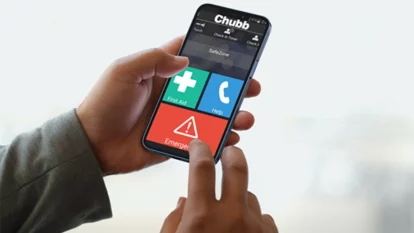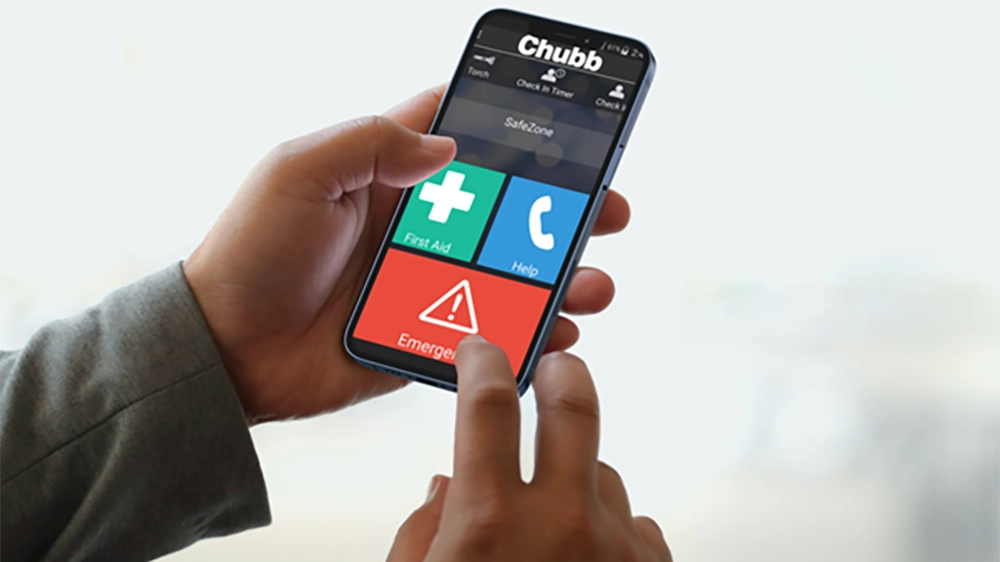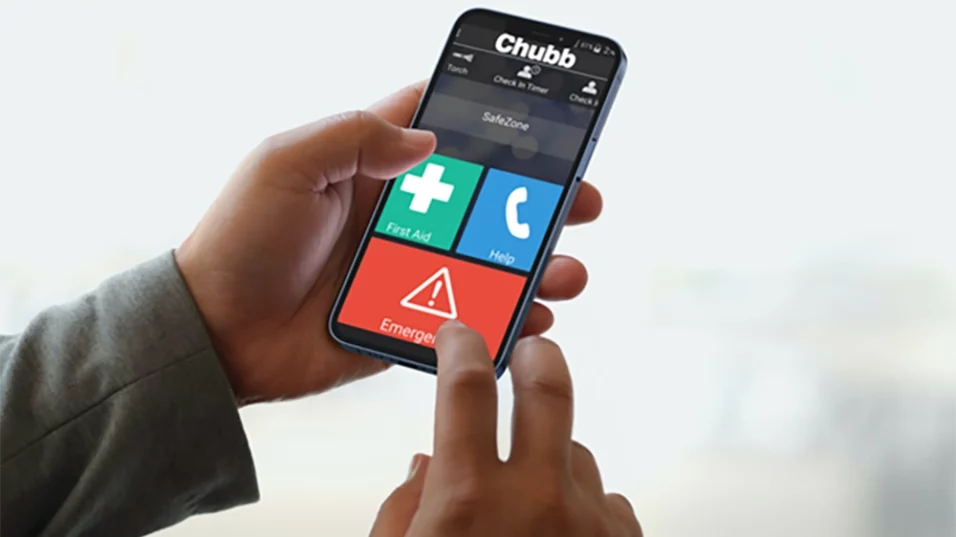



Protecting your most important asset – your people!
By Chubb | 29th March 2023




By Chubb | 29th March 2023
The world of work has become extremely fast-paced and dynamic, with more people than ever working from home or alone, sometimes in remote locations and for long periods. With increasing variations in work patterns, employers need to be assured that their people – wherever they’re located – are always safe. In this blog, David Rowan, Sales Director at Chubb explores the growth in lone working and introduces its new app designed to assist employers in keeping lone workers safe. For decades, customers have been considered a company’s most important asset; after all, a business couldn’t thrive without them. Whilst customers remain invaluable, the pandemic has helped businesses see the value of putting employees first, leading many employers to consider not only the physical safety but the mental health of their people.
Duty of care
Under the Health and Safety at Work Act 1974, employers have a responsibility to protect the health, safety and welfare of their workforce. Neglecting this duty of care, even by a small margin, could lead to substantial legal implications, such as fines, imprisonment and reputational damage. However, with an increasing number of people working remotely, safeguarding employees has become a greater challenge for employers – particularly protecting those working alone.
Lone workers
Currently, in the UK, there are an estimated 8 million lone workers, making up 22% of the 31.2 million working population. Lone working is defined by the Health & Safety Executive (HSE) as work carried out by people who work by themselves without close or direct supervision. In some cases, lone workers can be working completely independently; in other scenarios, they are not physically alone, but rather in a separate location from the rest of their team. For example, a retail worker replenishing stock by themselves in a store room is classed as a lone worker. Just some of the other examples include, security guards, warehouse operatives, social workers, cleaners, engineers out in the field, and facilities managers. Employees who cannot be seen or heard by a colleague are classed as lone workers.
Managing risk
In the workplace, all employees are exposed to risks, however, working alone makes lone workers more vulnerable to harm as they face risks alone. The main types of risk are accidents or emergencies carrying out a job, sudden illness, and physical violence from members of the public or intruders. Alarmingly, statistics from the Crime Survey for England and Wales indicate that as many as 150 lone workers are either physically or verbally attacked every day. Under the Management of Health and Safety at Work Regulations, employers are obligated to manage the risks to lone workers; however, according to a recent survey of 1,300 lone workers and health and safety professionals, some employers are falling short. The survey explored how seriously employers take lone worker safety and found that 94% of companies gave themselves a 10 out of 10 rating. In contrast, just 45% of lone workers felt the same and 33% believed other factors like deadlines and financial targets were considered more important than their safety.
Introducing SafeZone®
With 205 years of experience delivering fire safety and security solutions designed to help businesses protect their most valued assets, Chubb understands the challenges employers face in keeping their people safe. Recently, we launched a new lone worker app, SafeZone, designed specifically to help employers manage the safety of lone workers. Workers can swiftly raise an alert for general assistance (help), medical assistance (first aid), or an emergency using one of three buttons. When an alert is raised, the user’s location is shared with operators at Chubb’s 24/7/365 remote monitoring centre in real-time. The operators can then connect directly to emergency services to provide the most appropriate assistance. A check-in timer is also available on the app, allowing employees in high-risk situations to enter a duration or time of day they anticipate a particular activity, meeting or trip. When the countdown timer starts, if the check-in timer is not cancelled before the pre-set countdown time is reached, then an alert is automatically sent to Chubb’s remote monitoring centre.
Enhancing employee safety
A global biopharma company in the UK recently pilot tested SafeZone to enhance employee safety across its entire estate. Founded in 1715, the pharmaceutical giant employs some 70,000 people worldwide and has a rich pioneering history with medications spanning respiratory, oncology, antivirals and antibiotics. With multiple sites throughout the UK, the client required a solution to manage its lone worker activity. As many employees work alone in high-risk areas or confined spaces, the solution needed to visually demonstrate the location of workers in the event of an emergency and allow them to quickly request assistance. By using the app, the client was able to envisage how it could integrate with its varied environments. In particular, the client was impressed with the check-in timer and how it performed in its plant rooms. Following the trial, the client opted to roll out an enterprise package that complements the size and structure of the business, allowing the client to manage its people on multiple sites more efficiently through a command-and-control platform. All alerts raised through the enterprise platform are responded to by the client’s security teams on-site and benefit from Chubb’s remote monitoring expertise, providing ultimate reassurance for the personal safety of their most important asset – their people.